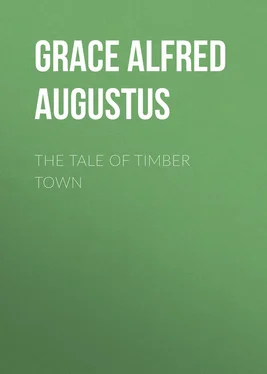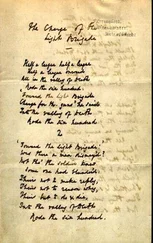Alfred Grace - The Tale of Timber Town
Здесь есть возможность читать онлайн «Alfred Grace - The Tale of Timber Town» — ознакомительный отрывок электронной книги совершенно бесплатно, а после прочтения отрывка купить полную версию. В некоторых случаях можно слушать аудио, скачать через торрент в формате fb2 и присутствует краткое содержание. Жанр: foreign_antique, foreign_prose, на английском языке. Описание произведения, (предисловие) а так же отзывы посетителей доступны на портале библиотеки ЛибКат.
- Название:The Tale of Timber Town
- Автор:
- Жанр:
- Год:неизвестен
- ISBN:нет данных
- Рейтинг книги:5 / 5. Голосов: 1
-
Избранное:Добавить в избранное
- Отзывы:
-
Ваша оценка:
- 100
- 1
- 2
- 3
- 4
- 5
The Tale of Timber Town: краткое содержание, описание и аннотация
Предлагаем к чтению аннотацию, описание, краткое содержание или предисловие (зависит от того, что написал сам автор книги «The Tale of Timber Town»). Если вы не нашли необходимую информацию о книге — напишите в комментариях, мы постараемся отыскать её.
The Tale of Timber Town — читать онлайн ознакомительный отрывок
Ниже представлен текст книги, разбитый по страницам. Система сохранения места последней прочитанной страницы, позволяет с удобством читать онлайн бесплатно книгу «The Tale of Timber Town», без необходимости каждый раз заново искать на чём Вы остановились. Поставьте закладку, и сможете в любой момент перейти на страницу, на которой закончили чтение.
Интервал:
Закладка:
Enoko peered, as though he mistrusted the sight of his eye – he had but one. Tahuna ran to the hut, and called, “Come out, both of you. There’s a ship on the rocks!”
From the hut issued two sleepy female forms, the one that of the chief’s wife, the other that of a pretty girl. The former was a typical Maori wahine of the better class, with regular features and an abundance of long black hair; the latter was not more than eighteen years old, of a lighter complexion, full-figured, and with a good-natured face which expressed grief and anxiety in every feature. “Oh!” she exclaimed, as a great wave broke over the helpless ship, “the sailors will be drowned. What can we do?”
“Amiria,” said the chief to her, “go back to the pa , and tell the people to come and help. We three,” – he pointed to his wife, Enoko and himself – “will see what we can do.”
“No,” replied the girl, “I can swim as well as any of you. I shall stay, and help.” She ran along the beach to the point nearest the wreck, and the others followed her.
Tahuna, standing in the wash of the sea, cried out, “A rope! A rope! A rope!” But his voice did not penetrate ten yards into the face of the gale.
Then all four, drenched with spray, shouted together, and with a similar result.
“If they could float a rope ashore,” said the chief, “we would make it fast, and so save them.”
The vessel lay outside a big reef which stretched between her and the shore; her hull was almost hidden by the surf which broke over her, the only dry place on her being the fore-top, which was crowded with sailors; and it was evident that she must soon break up under the battering seas which swept over her continually.
“They can’t swim,” said the chief, with a gesture of disgust. “The pakeha is a sheep, in the water. We must go to them . Now, remember: when you get near the ship, call out for a rope. We can drift back easily enough.”
He walked seawards till the surf was up to his knees. The others followed his example; the girl standing with the other woman between the men.
“Now,” cried Tahuna, as a great breaker retired; and the four Maoris rushed forward, and plunged into the surf. But the force of the next wave dashed them back upon the beach. Three times they tried to strike out from the shore, but each time they were washed back. Tahuna’s face was bleeding, Enoko limped as he rose to make the fourth attempt, but the women had so far escaped unscathed.
“When the wave goes out,” cried the chief, “rush forward, and grasp the rocks at the bottom. Then when the big wave passes, swim a few strokes, dive when the next comes, and take hold of the rocks again.”
“That’s a good plan,” said Enoko. “Let us try it.”
A great sea broke on the shore; they all rushed forward, and disappeared as the next wave came. Almost immediately their black heads were bobbing on the water. There came another great breaker, the four heads disappeared; the wave swept over the spot where they had dived, but bore no struggling brown bodies with it. Then again, but further out to sea, the black heads appeared, to sink again before the next great wave. Strong in nerve, powerful in limb were those amphibious Maoris, accustomed to the water from the year of their birth.
They were now fifty yards from the shore, and swam independently of one another; diving but seldom, and bravely breasting the waves.
The perishing sailors, who eagerly watched the swimmers, raised a shout, which gave the Maoris new courage.
Between the Natives and the ship stretched a white line of foam, hissing, roaring, boiling over a black reef which it was impossible to cross. The tired swimmers, therefore, had to make a painful detour. Slowly Tahuna and Enoko, who were in front, directed their course towards a channel at one end of the reef, and the women followed in their wake. They were swimming on their sides, but all their strength and skill seemed of little avail in bringing them any nearer to their goal. But suddenly Amiria dived beneath the great billows, and when her tangled, wet mane reappeared, she was in front of the men. They and the chief’s wife followed her example, and soon all four swimmers had passed through the channel. Outside another reef lay parallel to the first, and on it lay the stranded ship, fixed and fast, with the green seas pounding her to pieces.
When the Maoris were some fifty yards from the wreck, they spread themselves out in a line parallel to the reef on which lay the ship, her copper plates exposed half-way to the keel. “Rope! Rope! Rope!” shouted the Maoris. Their voices barely reached the ship, but the sailors well knew for what the swimmers risked their lives. Already a man had unrove the fore-signal-halyards, the sailors raised a shout and the coiled rope was thrown. It fell midway between Tahuna and Enoko, where Amiria was swimming. Quickly the brave girl grasped the life-line, and it was not long before her companions were beside her.
They now swam towards the channel. Once in the middle of that, they turned on their backs and floated, each holding tight to the rope, and the waves bearing them towards the shore.
The return passage took only a few minutes, but to get through the breakers which whitened the beach with foam was a matter of life or death to the swimmers. They were grasped by the great seas and were hurled upon the grinding boulders; they were sucked back by the receding tide, to be again thrown upon the shore.
Tahuna was the first to scramble out of the surf, though he limped as he walked above high-water-mark. Amiria lay exhausted on the very margin, the shallow surge sweeping over her; but the rope was still in her hand. The chief first carried the girl up the beach, and laid her, panting, on the stones; then he went back to look for the others. His wife, with wonderful fortune, was carried uninjured to his very feet, but Enoko was struggling in the back-wash which was drawing him into a great oncoming sea. Forgetting his maimed foot, the chief sprang towards his friend, seized hold of him and a boulder simultaneously, and let the coming wave pass over him and break upon the beach. Just as it retired, he picked up Enoko, and staggered ashore with his helpless burden.
For five minutes they all lay, panting and still. Then Amiria got up and hauled on the life-line. Behind her a strange piece of rock, shaped like a roughly-squared pillar, stood upright from the beach. To this she made fast the line, on which she pulled hard and strong. Tahuna rose, and helped her, and soon out of the surf there came a two-inch rope which had been tied to the signal-halyards.
When the chief and the girl had fixed the thicker rope round the rock, Tahuna tied the end of the life-line about his waist, walked to the edge of the sea, and held up his hand.
That was a signal for the first man to leave the ship. He would have to come hand-over-hand along the rope, through the waters that boiled over the deadly rocks, and through the thundering seas that beat the shore. And hand-over-hand he came, past the reef on which the ship lay, across the wild stretch of deep water, over the second and more perilous reef, and into the middle of the breakers of the beach. There he lost his hold, but Tahuna dashed into the surf, and seized him. The chief could now give no attention to his own safety, but his wife and Amiria hauled on the life-line, and prevented him and his burden from being carried seawards by the back-wash. And so the first man was saved from the wreck of The Mersey Witch .
Others soon followed; Tahuna became exhausted; his wife took his place, and tied the life-line round her waist. After she had rescued four men, Enoko came to himself and relieved her; and Amiria, not to be outdone in daring, tied the other end of the line about her waist, and took her stand beside the half-blind man.
Читать дальшеИнтервал:
Закладка:
Похожие книги на «The Tale of Timber Town»
Представляем Вашему вниманию похожие книги на «The Tale of Timber Town» списком для выбора. Мы отобрали схожую по названию и смыслу литературу в надежде предоставить читателям больше вариантов отыскать новые, интересные, ещё непрочитанные произведения.
Обсуждение, отзывы о книге «The Tale of Timber Town» и просто собственные мнения читателей. Оставьте ваши комментарии, напишите, что Вы думаете о произведении, его смысле или главных героях. Укажите что конкретно понравилось, а что нет, и почему Вы так считаете.












